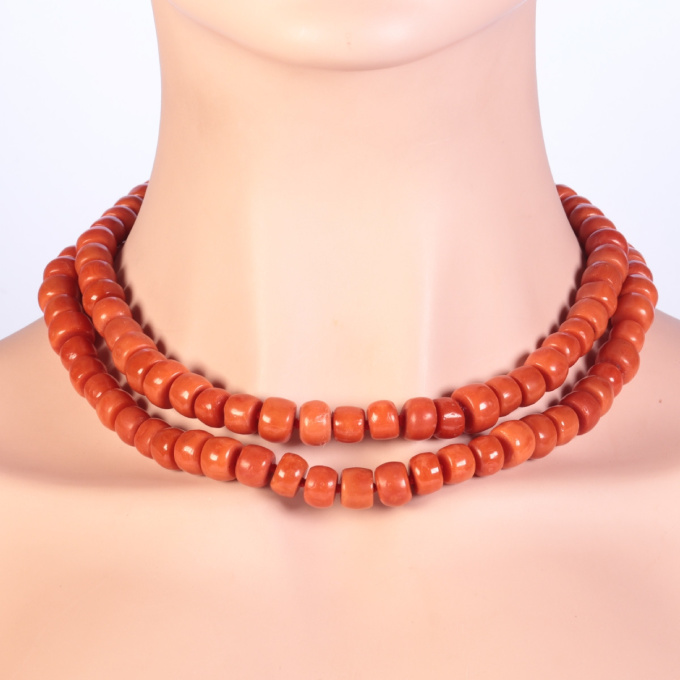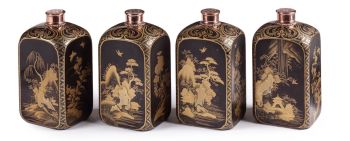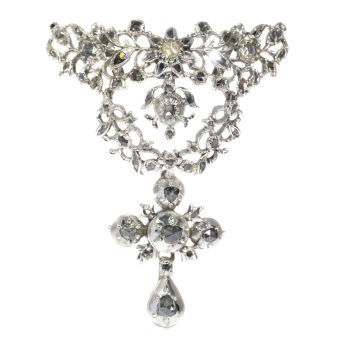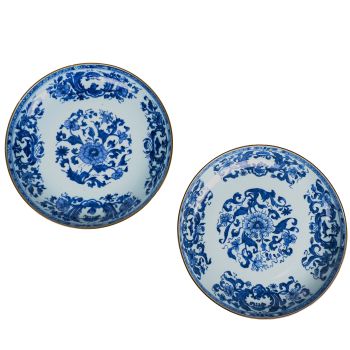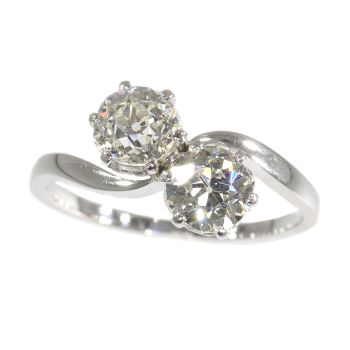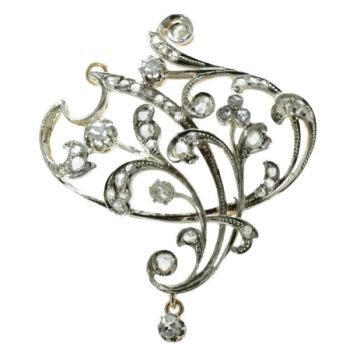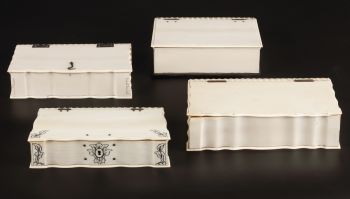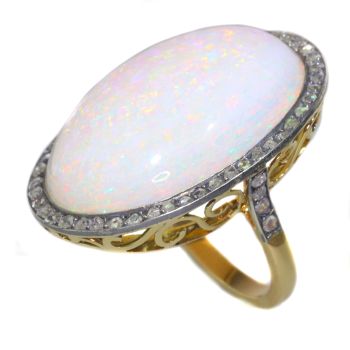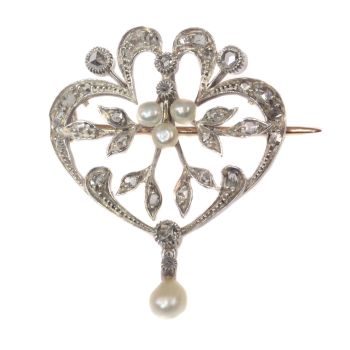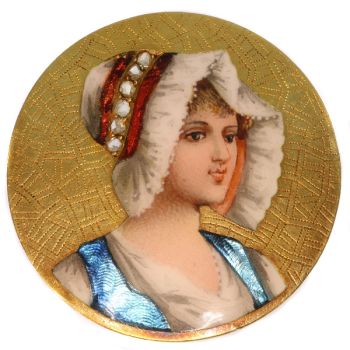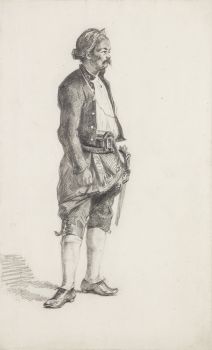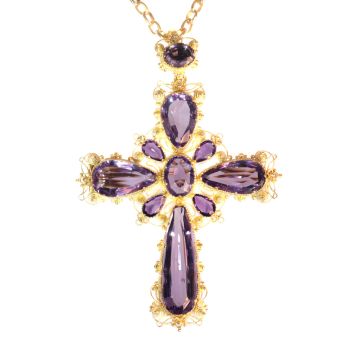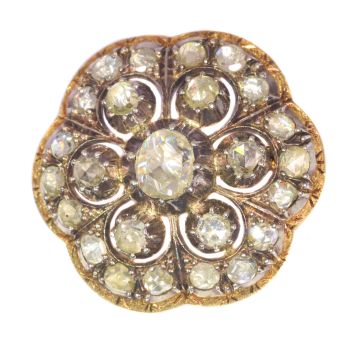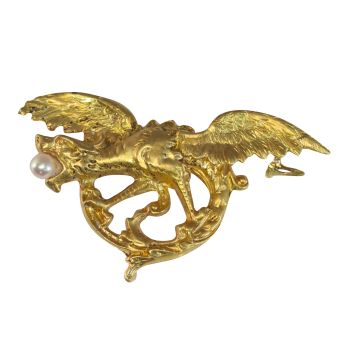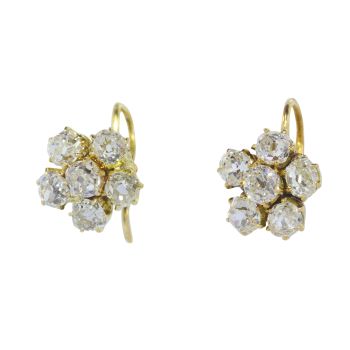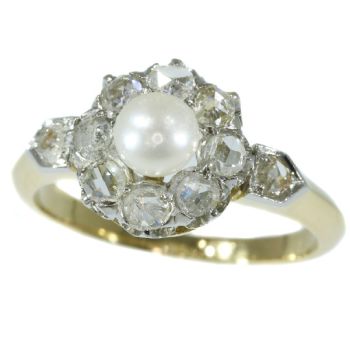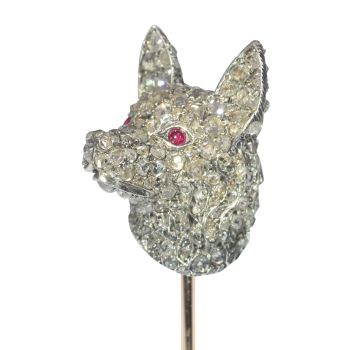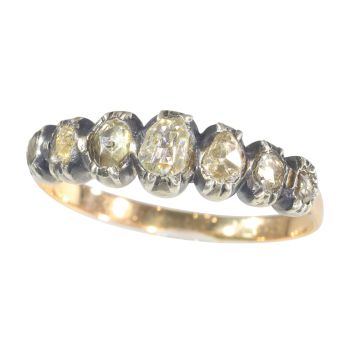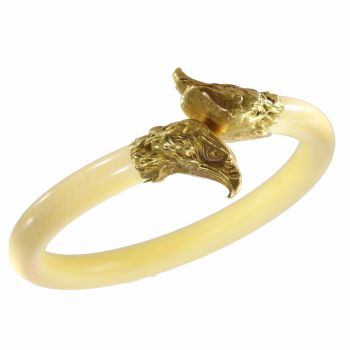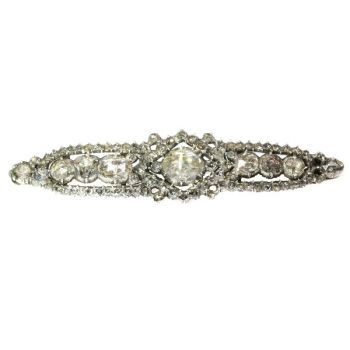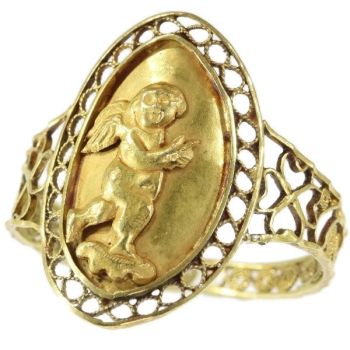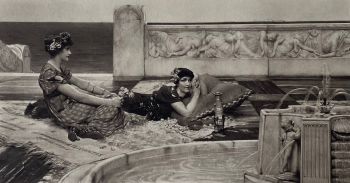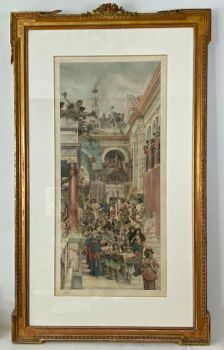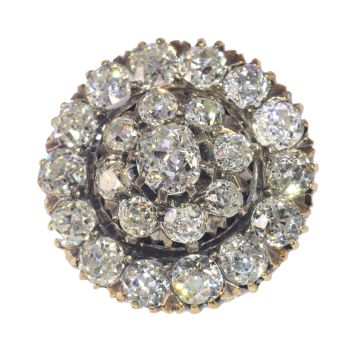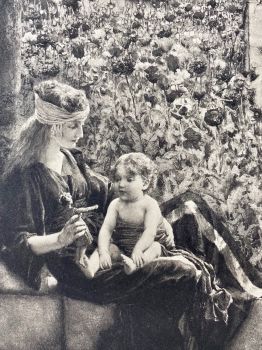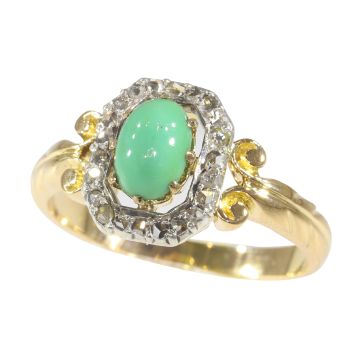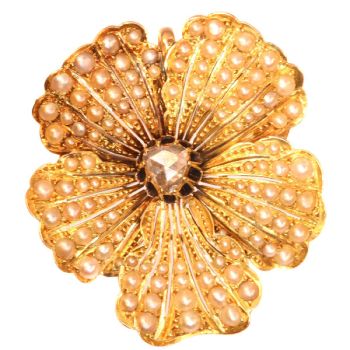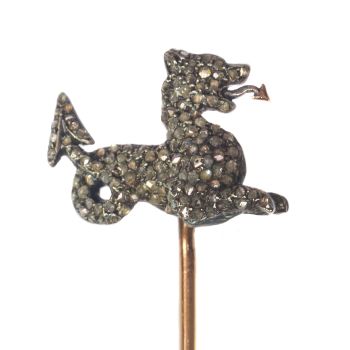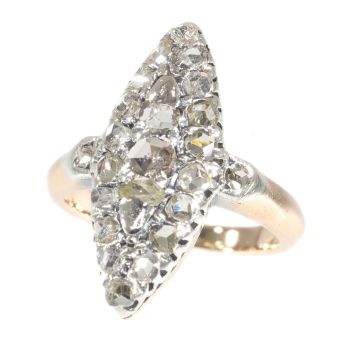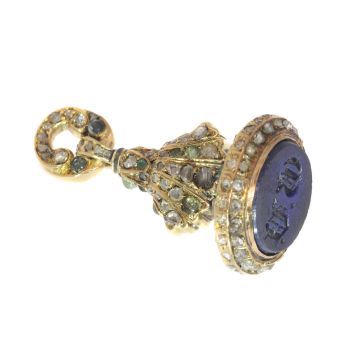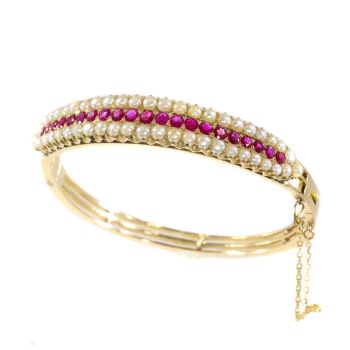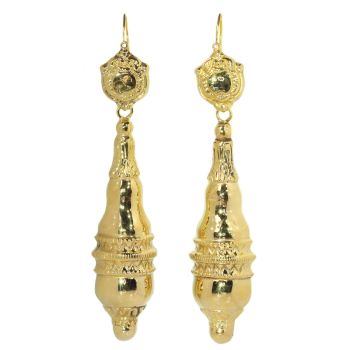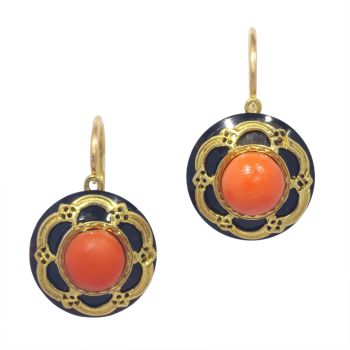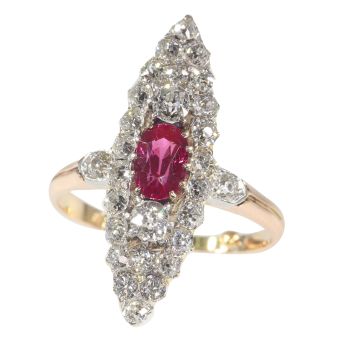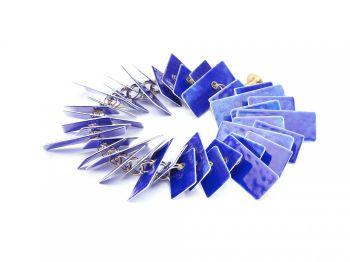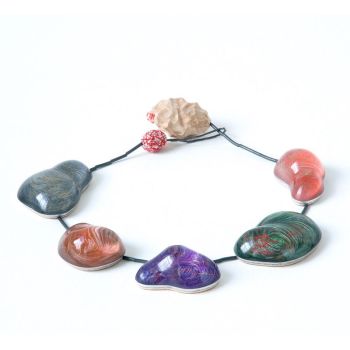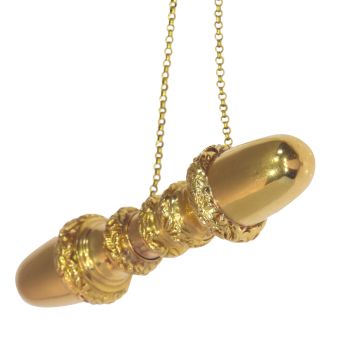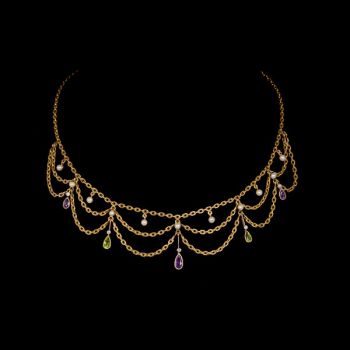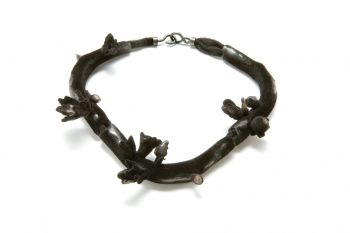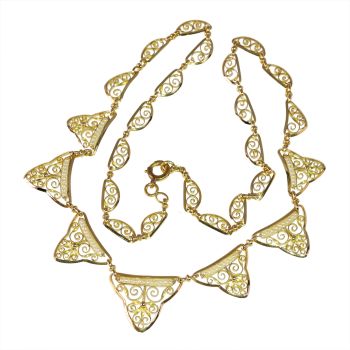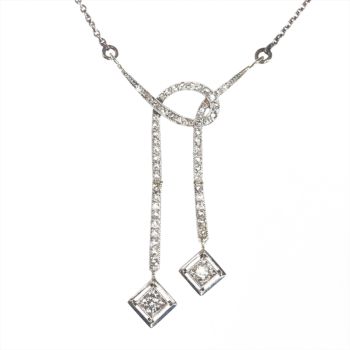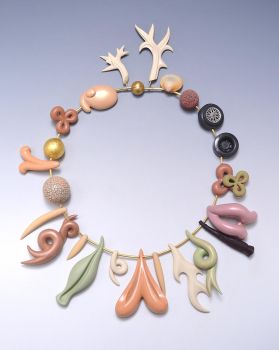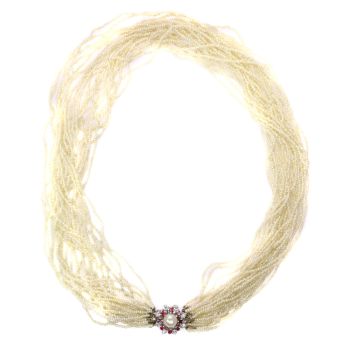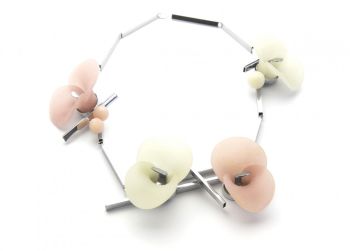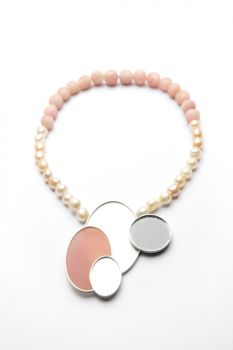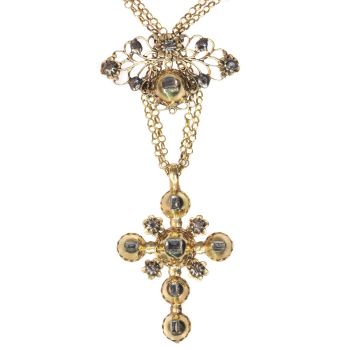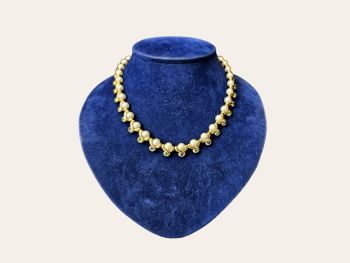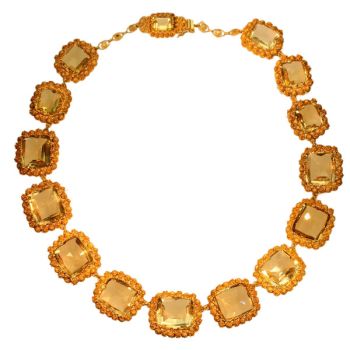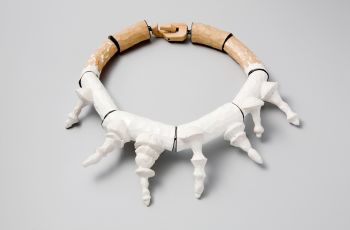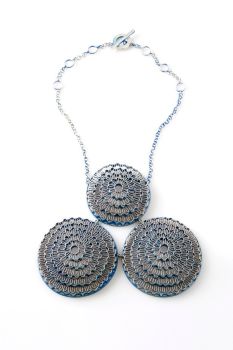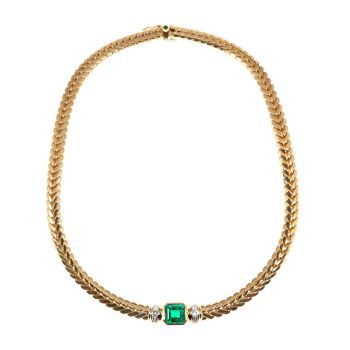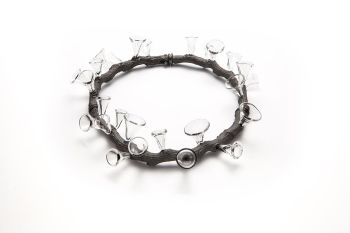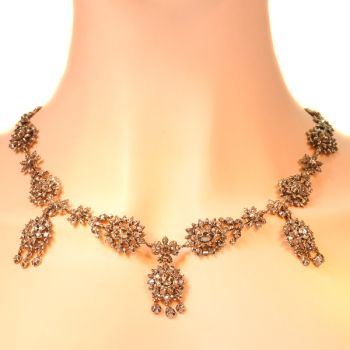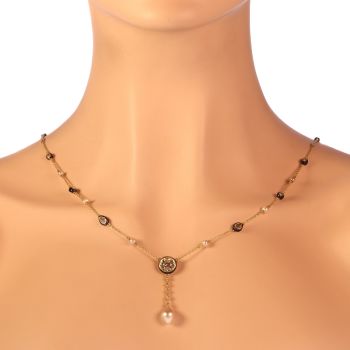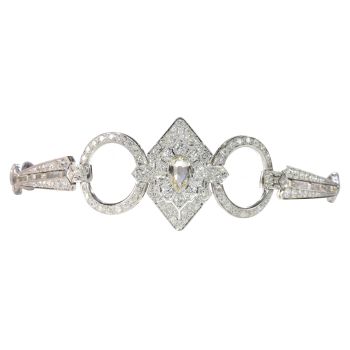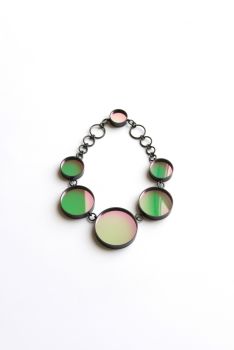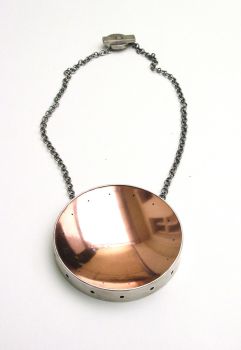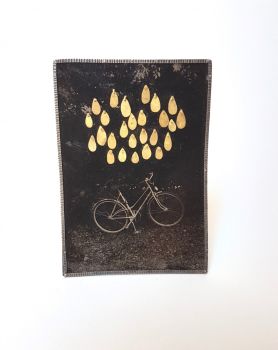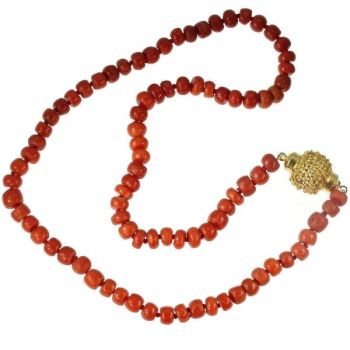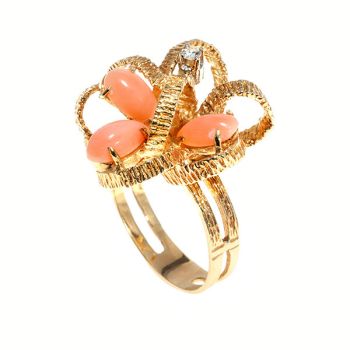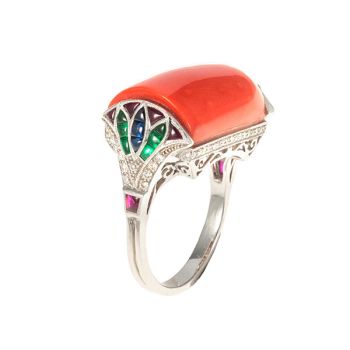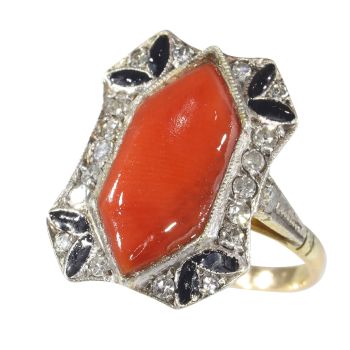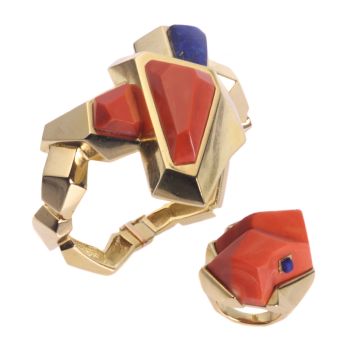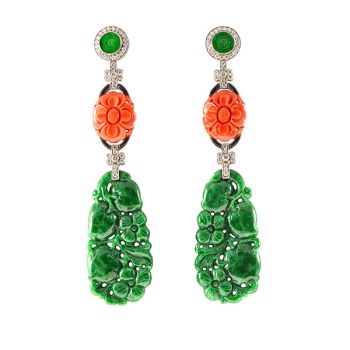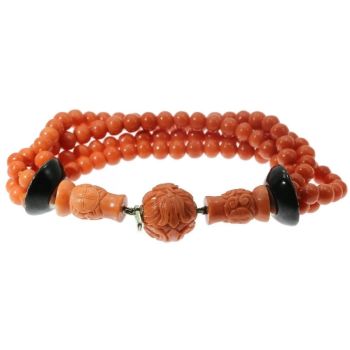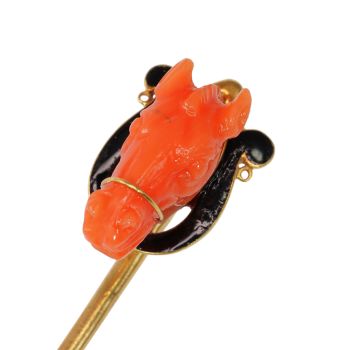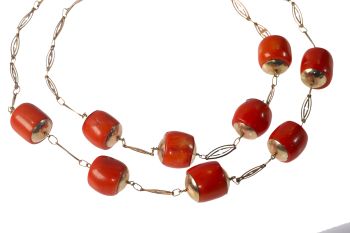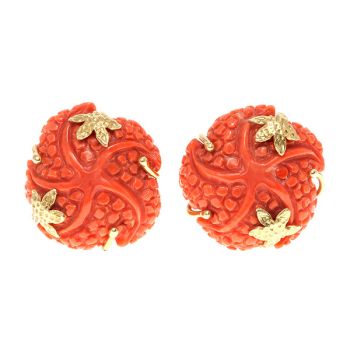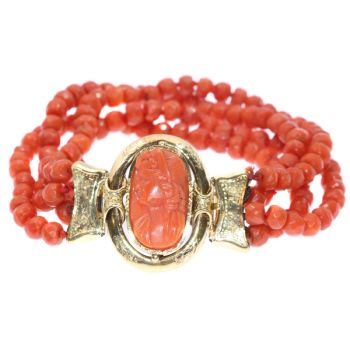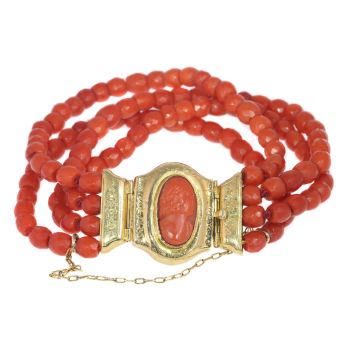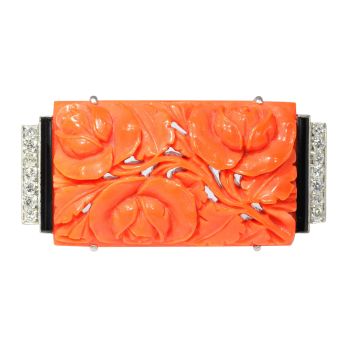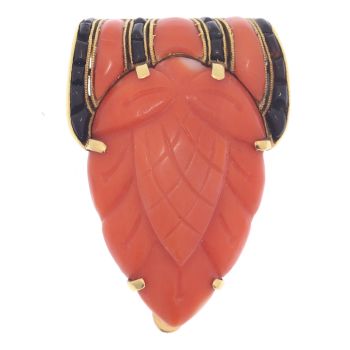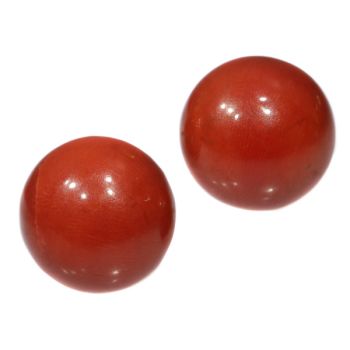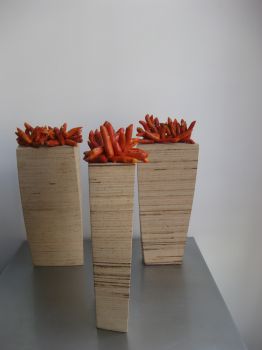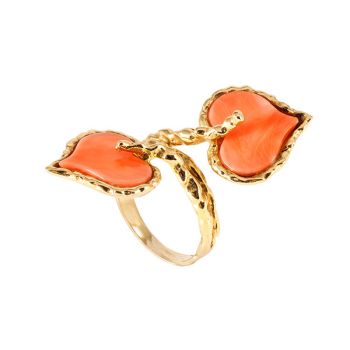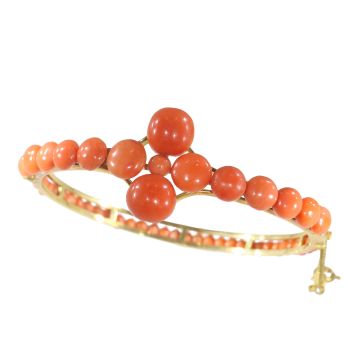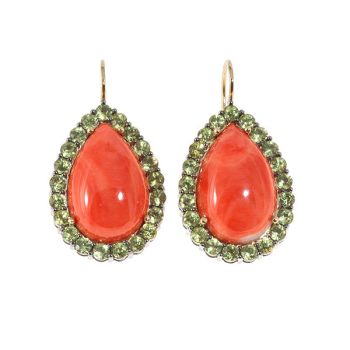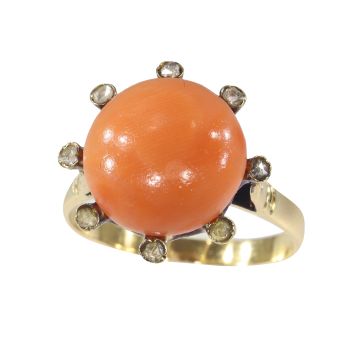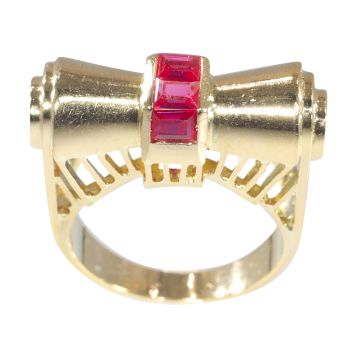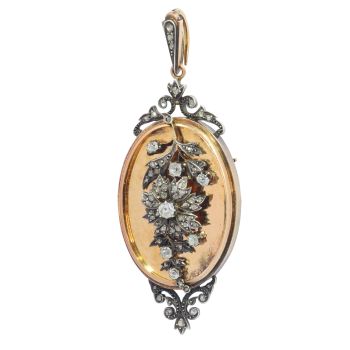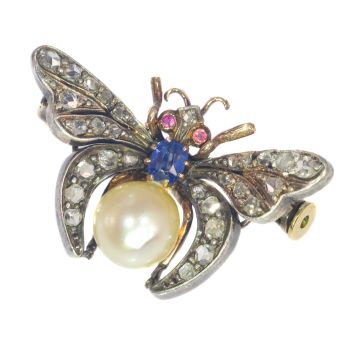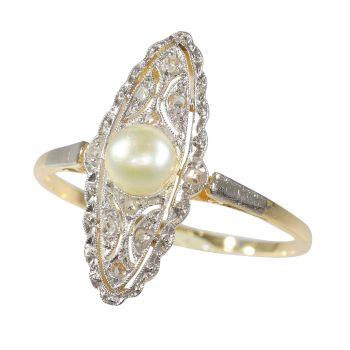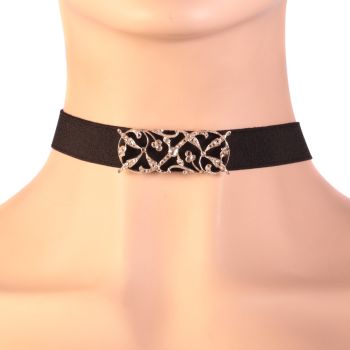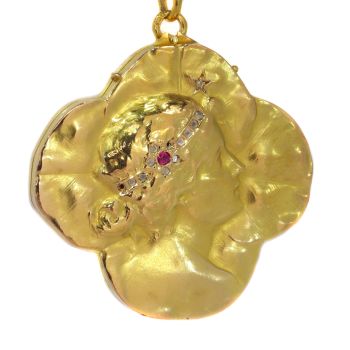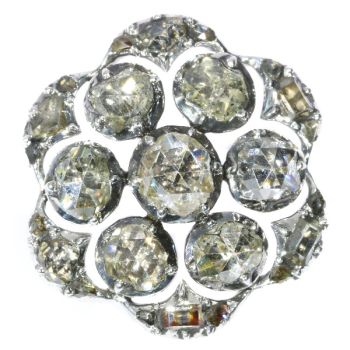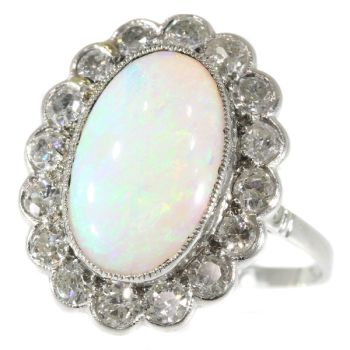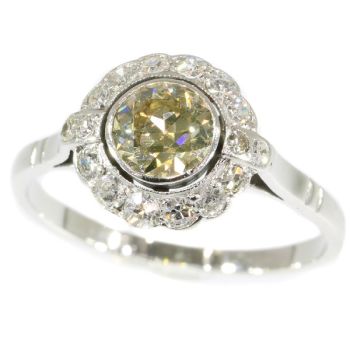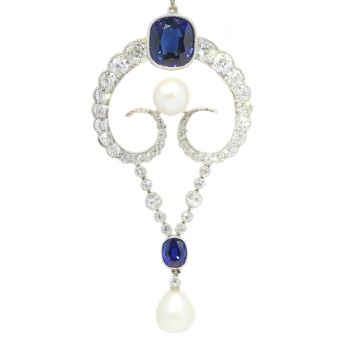Antica collana lunga in corallo sanguigno con perline spesse 1900
Artista Sconosciuto
Corallo
€ 6.850
Adin Fine Antique Jewellery
- A proposito di opere d'arte
Antique jewelry object group: bead necklace
Condition: very good condition
- (more info on our condition scale)
Style: Victorian - Victorian decorative arts refers to the style of decorative arts during the Victorian era. The Victorian era is known for its eclectic revival and interpretation of historic styles and the introduction of cross-cultural influences from themiddle east and Asia in furniture, fittings, and Interior decoration. Victorian design is widely viewed as having indulged in a regrettable excess of ornament. The Arts and Crafts movement, the aesthetic movement, Anglo-Japanese style, and Art Nouveaustyle have their beginnings in the late Victorian era.
- See also: Victorianor more info on styles
Period: ca. 1900
- (events & facts of this era, poetry of this era, fashion of this era)
Precious stones: 108 coral beads with a diameter between 10mm and 12mm
Extra information:Conventional Buddhist tradition counts the beads at 108, signifying the mortal desires of mankind. The number is attributed to the Mokugenji (soapberry seed) Sutra wherein Shakyamuni Buddha instructed King Virudhakato make such beads and recite the Three Jewels of Buddhism. In later years, various Buddhist sects would either retain the number of beads, or divide them into consecutive twos, fours, for brevity or informality.
A decorative tassel is sometimes attached to the beads, flanked by talismans or amulets depending on one's local tradition. Because prayer beads are often painted in pigment, various traditional schools attribute a consecrationritual by the Sangha to the beads, to "open the eyes" for the purpose of achieving Enlightenment unique to the Karma of each believer. (From: Wikipedia)
Dimensions: total length 100,00 cm (39,37 inch) - See picture with a ruler in cm and inches
Weight: 197.90 gram (127.25 dwt)
Reference Nº: 19262-0321
Copyright photography: Adin, fine antique jewelry
- A proposito di opere artista
Può succedere che un artista o un creatore sia sconosciuto.
Alcune opere non sono determinate da chi sono state realizzate o sono state realizzate da (un gruppo di) artigiani. Esempi sono statue dell'antichità, mobili, specchi o firme non chiare o leggibili ma anche alcune opere non sono affatto firmate.
Inoltre puoi trovare la seguente descrizione:
•"Attribuito a …." A loro avviso probabilmente opera dell'artista, almeno in parte
•“Studio di ….” o “Officina di” A loro avviso un'opera eseguita nello studio o nella bottega dell'artista, eventualmente sotto la sua supervisione
•“Cerchio di…” A loro avviso un'opera del periodo dell'artista che mostra la sua influenza, strettamente legata all'artista ma non necessariamente al suo allievo
•"Stile di..." o "Seguace di..." A loro avviso un'opera eseguita nello stile dell'artista ma non necessariamente da un allievo; può essere contemporaneo o quasi contemporaneo
•“Modalità di…” A loro avviso un'opera nello stile dell'artista ma di epoca successiva
•"Dopo …." A loro avviso una copia (di qualsiasi data) di un'opera dell'artista
•“Firmato…”, “Datato…” o “Iscritto” A loro avviso l'opera è stata firmata/datata/inscritta dall'artista. L'aggiunta di un punto interrogativo indica un elemento di dubbio
•"Con firma....", "Con data...", "Con iscrizione..." o “Riporta firma/data/iscrizione” a loro avviso la firma/data/iscrizione è stata aggiunta da qualcuno diverso dall'artista
Sei interessato ad acquistare questa opera d'arte?
Artwork details
Related artworks
Onbekende Kunstenaar
EEN COLLECTIE VAN VIER SRI LANKAANSE IVOREN BIJBEL DOZEN18th century
Prijs op aanvraagZebregs & Röell - Fine Art - Antiques
Onbekende Kunstenaar
Chinese gilt bronze censer, Xuande mark, 18th century, Qing dynasty18th century
Prijs op aanvraagMenken Works of Art
Onbekende Kunstenaar
Twee studieportretten van Mas Marco Kartodikromo1900 - 1950
Prijs op aanvraagZebregs & Röell - Fine Art - Antiques
1 - 4 / 12- 1 - 4 / 24
- 1 - 4 / 24
- 1 - 4 / 22
- 1 - 4 / 12

